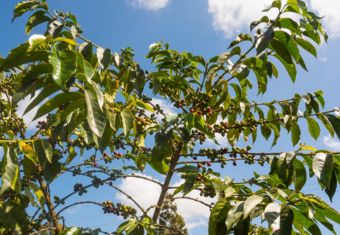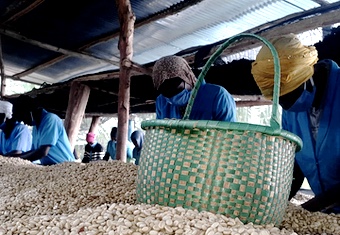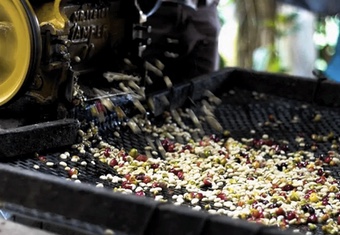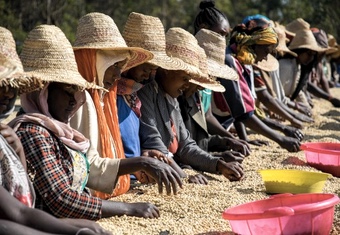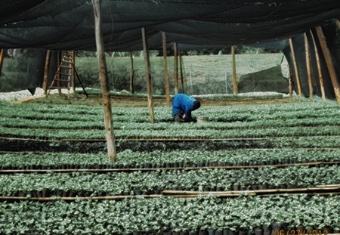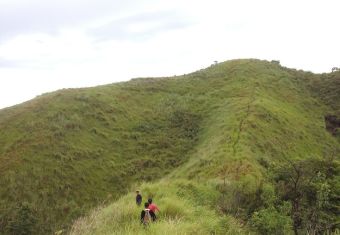Kenya Karimikui AA
Karimikui Factory is owned and operated by Rung'eto Farmer Cooperative Society (FCS). Two thousand five hundred ninety-one farmers delivering to the station cultivate coffee at 1,600 to 1,700 meters above sea level. They grow SL28, SL34, and Ruiru 11 varieties and deliver ripe, red cherries to the station.

The farmers delivering to Karimikui, with their small coffee gardens that are, on average, smaller than 1 hectare, cultivate primarily SL28, SL34, and Ruiru 11. These ‘SL’ varieties, initially released by Scott Agricultural Laboratories (SAL) in the 1930s and 1940s, have become the go-to trees for many growers in Kenya due to their deep root structure, which allows them to maximize scarce water resources and flourish even without irrigation. The farmers cultivate these varieties with a serious eye to sustainability and Good Agricultural Practices, with minimal environmental impact where possible. The introduction of Ruiru 11, a new variety known for its disease resistance and high yields, is a testament to their dedication and innovation in the field. It also starts yielding fruit after just 2 years, a result of their hard work and patience.
They also receive soil sampling from Kahawa Bora. This soil sampling program is a key step in enhancing farmer profitability. By providing farmers with better access to information through technology and agronomical assistance, they can apply the right fertilizer recipe at the right time, improving yields and cherry quality. Lower input costs mean lower overall production costs and higher profits. More targeted input application also translates into healthier trees and higher-quality cherries. Before Kahawa Bora’s soil sampling program, farmers had little access to soil analysis methods. Fertilizer, when applied, would be formulated according to a generalized recipe rather than one uniquely suited to the farm’s exact needs. Now, with the soil sampling program, farmers can make more informed decisions about their farming practices, leading to improved profitability and higher-quality cherries.

Smallholders selectively handpick only ripe cherries and deliver them to Karimukui Factory. At intake, the Cherry Clerk oversees a meticulous visual sorting and floating process, accepting only dense, ripe cherries. This rigorous selection process ensures that only the highest quality cherries are used in the production of our coffee, providing you with a product you can trust and enjoy.
After intake, cherry is pulped and fermented for approximately 12 to 24 hours. This process helps to remove the outer skin of the cherry and initiate the fermentation process, which contributes to the unique flavor profile of the coffee. Following fermentation, coffee is washed in clean water and soaked for 24 hours. This washing and soaking process further removes any remaining pulp, helping to develop the coffee’s flavor. After soaking, parchment is laid to dry on raised beds. Workers rake parchment frequently to ensure even drying. They cover drying parchment during the hottest time of day, to maintain slow, even drying, and at night, to shelter parchment from moisture. This careful drying process is crucial to maintaining the quality of the coffee. It takes approximately 7 to 14 days for parchment to dry, during which time the coffee’s flavor profile continues to develop.
